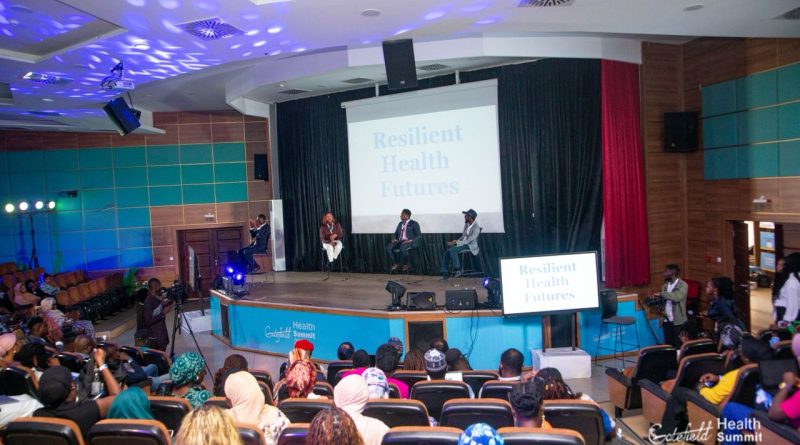Gatefield, experts call for urgent reforms to address Nigeria’s health crisis
Gatefield, a media group focused on driving social change, and health stakeholders have renewed calls for urgent reforms to fix Nigeria’s health system and improve the country’s low life expectancy.
They made the call at the 2025 Gatefield Health Summit in Abuja on Wednesday. The summit, themed ‘Resilient Health Futures,’ focuses on tackling chronic diseases, health financing, pandemic preparedness, antimicrobial resistance (AMR), and advancing the One Health approach.
In his keynote address, Gatefield Founder and Chief Executive Officer, Adewumi Emoruwa, confronted the reality of Nigeria’s health crisis, citing life expectancy as a key indicator of systemic failure.
Mr Emoruwa said the average life expectancy of a Nigerian is 54 years noting that its a crisis Nigerians must be aware of.
“This means if you’re 25 or 27 in Nigeria today, you’re already at your half-life. This is not just about when people die. It’s about how well they live,” he said.
He added that it’s also about access to nutritious food, clean water, safe medicines, and reliable healthcare, noting that other countries are designing systems that help people live longer and urged Nigeria to do the same.
Funding gap. Maternal health crisis
Speaking on health financing, Mr Emoruwa criticised the vast inequities in global and national funding for health systems, especially in countries bearing the brunt of disease outbreaks.
He noted that Africa is home to 25 per cent of the world’s disease burden meaning that one in every four illnesses globally either originates in or heavily affects the continent.
He also highlighted the contrast in annual health spending per citizen citing that it is over $4,500 in Europe, $12,000 in Switzerland, and just $5 in Nigeria.
“Think about it, you need to gather 2,500 Nigerians before you equal the healthcare budget of just one Swiss citizen. That’s the funding gap. And as long as we underfund our own system, we’ll continue outsourcing our health outcomes to fate and luck,” he said.
Addressing the devastating state of maternal health, Mr Emoruwa called it a national emergency and highlighted the dramatic reduction in Nigeria’s family planning budget, a 97 per cent cut between 2024 and 2025.

He stressed that improving women’s health is non-negotiable not just for their wellbeing, but for the future of communities and economies.
“Women’s health is not a side issue, it’s the foundation of public health. If women aren’t healthy, families aren’t healthy. And if families aren’t healthy, nations can’t thrive.”
A push for localisation and resilience in care delivery
In his remarks, the Managing Director of the Society for Family Health, Omokhudu Idogho, stressed the compounding pressures Nigeria’s health system has faced in recent years from pandemics to economic turbulence.
READ ALSO: Ilesa comes alive as Abiodun Lufadeju leads orchestra in ‘Night of a Thousand Praises’
Mr Idogho, who was represented by Anthony Nwala, noted that for him, resilience isn’t an abstract concept but a fundamental principle that must inform every stage of health delivery.
“It’s beyond the concept, it is woven into our design, it’s woven into our delivery, and it’s woven into our impact. That is why we must think about resilience in health systems,” he said.
He argued that cost-effective healthcare is possible with the right models while also emphasising the power of localisation not just as a buzzword, but as a tested solution to build autonomous, Pan-African health organisations.

